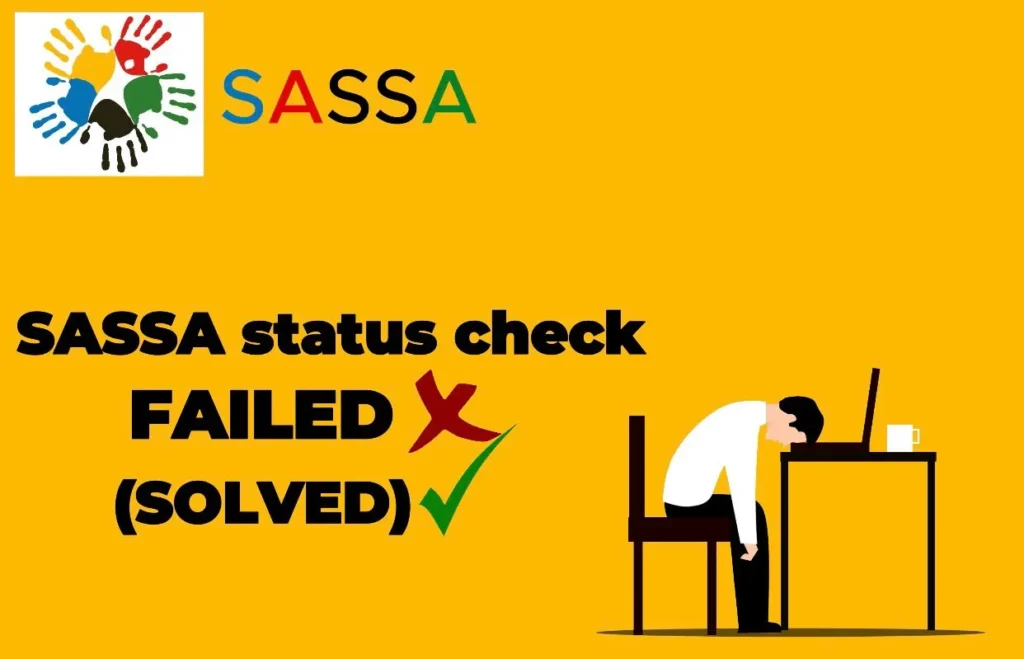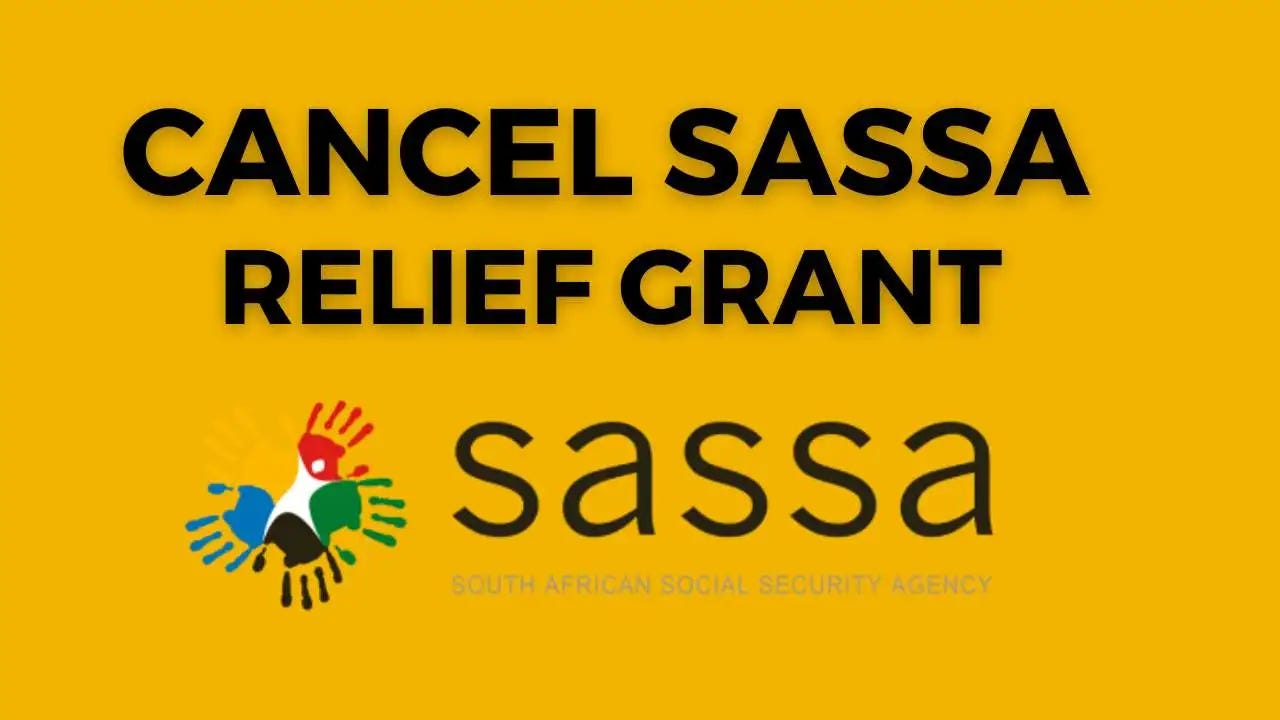If you’ve received a notification that your application for the South African Social Security Agency (SASSA) R350 grant has been declined, it’s crucial to understand the reasons behind the rejection before proceeding with an appeal. SASSA may decline applications due to various factors, such as incomplete information, failure to meet eligibility criteria, or errors in the application process.
Some common reasons for SASSA R350 grant rejection include:
1. Inaccurate Personal Details
Providing inaccurate personal information, such as an incorrect ID number or bank account details, can lead to application rejection. Ensuring that your personal details are accurate and up-to-date is essential when applying for the SASSA R350 grant.
2. Existing Income Sources Exceeding the Threshold
If you have existing income sources that exceed the income threshold set by SASSA, your application may be declined. SASSA has strict income requirements for grant eligibility, and applicants must not have an inflow of funds into their accounts amounting to more than R595 per month.
3. Duplicate Applications Under the Same ID

Submitting multiple applications under the same ID number can result in rejection, as SASSA considers this a duplicate application. Each applicant should only submit one application per month.
4. Failure to Meet Qualification Criteria
SASSA has specific criteria for eligibility, and if you fail to meet any of these requirements, your application may be rejected. For instance, recipients of other social grants may not qualify for the R350 grant.
Understanding the specific reason for your grant’s rejection is essential, as it will help you tailor your appeal effectively and address the correct issues.
Preparing for Your SASSA R350 Grant Appeal
Once you’ve identified the reason for your grant’s rejection, it’s time to prepare for the appeal process. Here are the steps you should follow:
1. Gather Supporting Documentation
Collect all relevant documents that support your case and counter the reason for your application’s rejection. This may include:
- Valid ID document: Ensure you have a valid and up-to-date South African ID document.
- Proof of address: Provide proof of your residential address, such as a recent utility bill or an affidavit from a recognized authority.
- Evidence of income or lack thereof: If your application was rejected due to existing income sources, gather documentation that proves your current financial situation and lack of income, such as bank statements or a letter from your employer confirming job loss.
Having these documents ready will strengthen your case and increase your chances of a successful appeal.
2. Understand the Appeals Process
Familiarize yourself with the SASSA appeal process. According to the agency, the appeal must be made within 30 days of receiving your declined notice. Missing this deadline may result in your appeal being dismissed.
3. Draft a Concise Appeal Letter
Drafting a clear and concise appeal letter is crucial. Your letter should include the following information:
- Personal information: Your full name, ID number, and contact details.
- Grant ID: The unique identification number assigned to your grant application.
- Reason for rejection: Clearly state the reason provided by SASSA for rejecting your application.
- Explanation and evidence: Provide a detailed explanation of why you believe the decision should be reconsidered, supported by the relevant documentation you’ve gathered.
Remember to maintain a professional and respectful tone throughout your letter, as this will help establish credibility and increase the chances of your appeal being considered favorably.
Submitting Your SASSA R350 Grant Appeal
After preparing your appeal letter and supporting documents, it’s time to submit your appeal. SASSA provides various channels for submitting appeals, including:

1. Online Submission
SASSA’s website allows you to submit your appeal online. Follow these steps:
- Visit the SASSA website (www.sassa.gov.za).
- Navigate to the “Appeals” section.
- Complete the online appeal form, providing all the required information and attaching your supporting documents.
- Submit the completed form.
2. Email Submission
You can also submit your appeal via email. Send your appeal letter and supporting documents to the designated SASSA email address for appeals, which can be found on their website or by contacting their customer service center.
3. In-Person Submission
If you prefer a more personal approach, you can visit your nearest SASSA office and submit your appeal in person. Bring all the required documents and be prepared to explain your case to a SASSA representative.
Regardless of the submission method you choose, ensure that you keep a record of your appeal, including any reference numbers or confirmation receipts provided by SASSA.
Following Up on Your SASSA R350 Grant Appeal
After submitting your appeal, it’s important to follow up regularly with SASSA to ensure that your case is being processed. Here are some tips for effective follow-up:
1. Note the Timelines
SASSA typically provides an estimated timeline for processing appeals. Make a note of this timeline and follow up if you haven’t received a response within the specified time frame.
2. Contact SASSA Regularly
Don’t hesitate to contact SASSA’s customer service center or your local office to inquire about the status of your appeal. Keep a record of all communication, including the date, time, and the representative you spoke with.
3. Request a Case Reference Number
If you haven’t already received a case reference number for your appeal, request one from SASSA. This number will help you track your appeal more effectively and ensure that your case is correctly identified during follow-up.
4. Escalate if Necessary
If you encounter difficulties or unreasonable delays in the appeal process, consider escalating your case to a higher authority within SASSA. You can request to speak with a supervisor or file a formal complaint if necessary.
Remember, persistence and regular follow-up are key to ensuring that your appeal is processed in a timely manner and that your case is given the attention it deserves.
Frequently Asked Questions (FAQs) About SASSA R350 Grant Appeals
1. What if my appeal is unsuccessful?
If your appeal is unsuccessful, SASSA may provide you with the option to dispute the reconsidered decision through legal channels. In such cases, you should seek legal advice and consider approaching the appropriate court to challenge the decision.
2. Can I reapply for the SASSA R350 grant if my circumstances change?
Yes, if your circumstances change and you no longer have an income source or meet the eligibility criteria, you can reinstate your application for the R350 grant through the SASSA website or by visiting your nearest SASSA office.
3. How long does the appeal process typically take?
The duration of the appeal process can vary depending on the volume of appeals SASSA is processing and the complexity of your case. However, SASSA typically provides an estimated timeline for processing appeals, which you can use as a reference.
4. Can I receive retroactive payments if my appeal is successful?
If your appeal is successful, SASSA may provide retroactive payments for the months during which your grant was declined, depending on the specific circumstances of your case.
5. What should I do if I’m unable to submit my appeal online or via email?
If you are unable to submit your appeal online or via email, you can visit your nearest SASSA office and submit your appeal in person. Alternatively, you can contact SASSA’s customer service center for guidance on alternative submission methods.
Conclusion: Navigating the SASSA R350 Grant Appeal Process Successfully
Appealing a declined SASSA R350 grant can be a challenging process, but with proper preparation and persistence, your chances of success increase significantly. Remember to gather all necessary documentation, understand the appeals process, draft a clear and concise appeal letter, and follow up regularly with SASSA. By following the steps outlined in this comprehensive guide, you’ll be well-equipped to navigate the appeals process and potentially secure the financial assistance you need during these challenging times.
